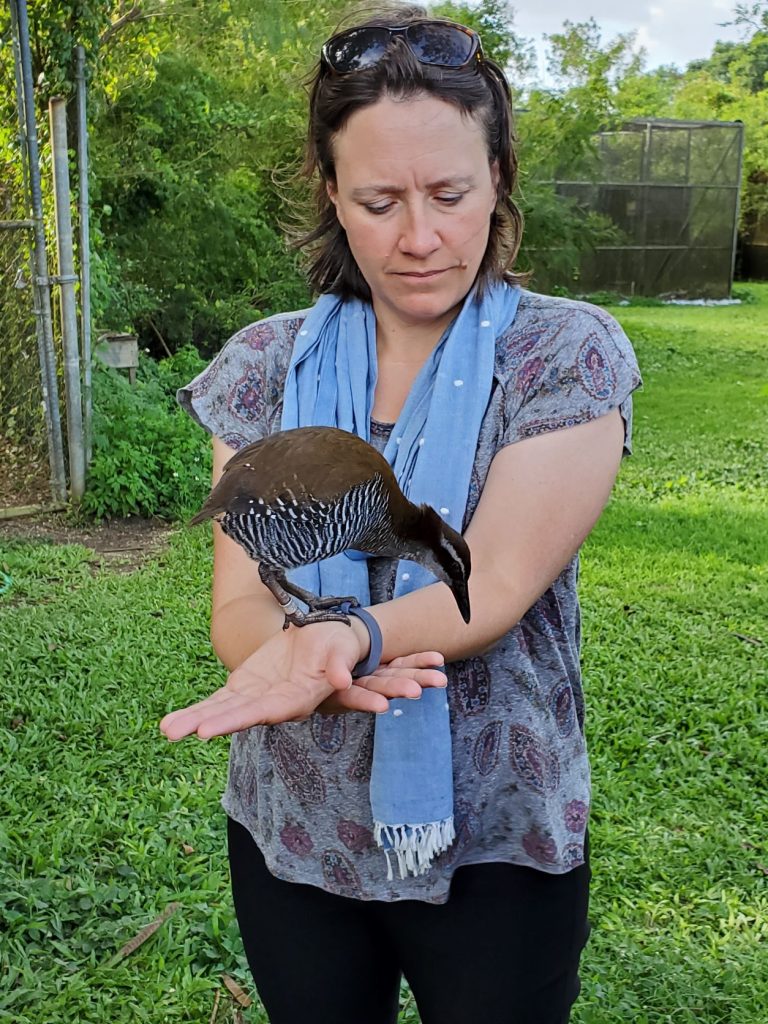
Dr. Sarah Converse
I am the Unit Leader of the Washington Cooperative Fish and Wildlife Research Unit, and a Professor in the School of Aquatic and Fishery Sciences & the School of Environmental and Forest Sciences at the University of Washington. I am also a member of the IUCN Conservation Translocations Specialist Group.
Officially, I’m interested in doing science that helps managers make better, more informed, and more transparent decisions about the management of fish and wildlife populations. Unofficially, I’m interested in staying out of the way and letting the excellent post-docs and students I’m lucky enough to work with do their magic. You can read more about them on this page.
You can find out more about our work on my Google Scholar page and the lab GitHub page. My current-ish CV can be found here.
Post-Docs
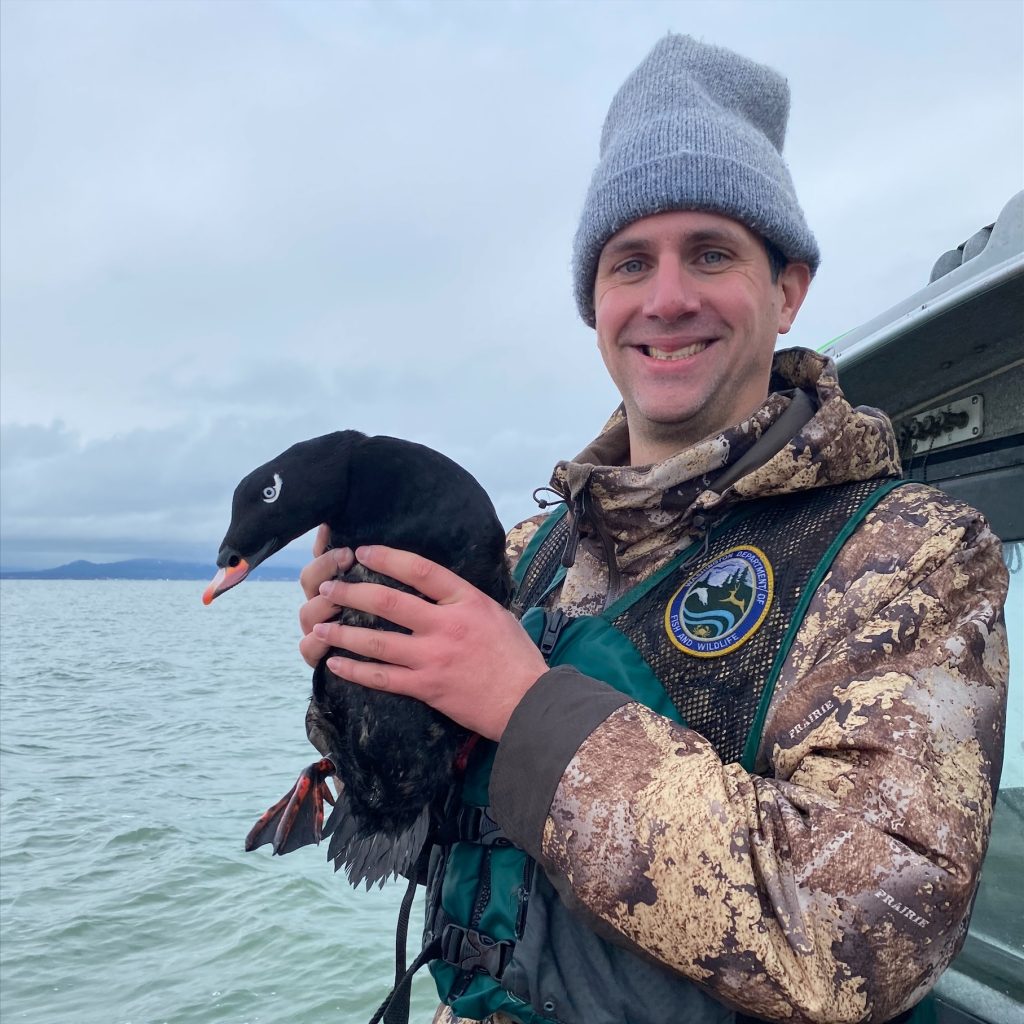
Dr. Matt Farr
Project: Maximizing the Value of Salish Sea Aerial Surveys for Sea Duck Management
Contact: farrm (at) uw.edu
I develop quantitative methods for community and population ecology. I utilize hierarchical models to parse out the complexities of ecological systems into processes that can be described using multi-level statistical and mathematical models. I work with partners in academia and government agencies to apply these methods to conserve and manage wildlife populations. The aim of my postdoctoral research is to develop a quantitative framework to assess population trends and distributions of sea ducks and other marine birds within the Salish Sea. In collaboration with Washington Department of Fish & Wildlife, we are using long-term aerial survey data to estimate spatiotemporal variation in sea duck abundance and potential environmental drivers of their spatial distribution and temporal trends. Results from this work will improve methods to estimate sea duck abundance and inform harvest regulations. For more information about me or my work, please see my website (https://farrmt.github.io/).
Graduate Students

Mr. Timothy Chen
Project: Using quantitative methods to assess and manage threats for northwestern pond turtle recovery
Contact: tmzchen (at) uw.edu
Hi! I am a PhD student in the School of Environmental and Forest Sciences at the University of Washington. I am currently working on building models that help conserve the state-endangered Morthwestern pond turtles here in Washington, splitting my time in front of my computer and playing with turtles, as my friends call it. I am working closely with the Washington Department of FIsh and Wildlife, hoping to help them better assess threats and manage resources for northwestern pond turtle conservation. Prior to coming to UW, I completed my B.S. in Environmental Science and Management at UC Davis, where I spent time studying how snowmelt patterns affect amphibian phenology and how plants evolve in serpentine grasslands. In my free time, I enjoy rock climbing, working out, and enjoying the PNW outdoors in all the ways possible. My research interests include population modeling, wildlife conservation, resource management, and climate change ecology.
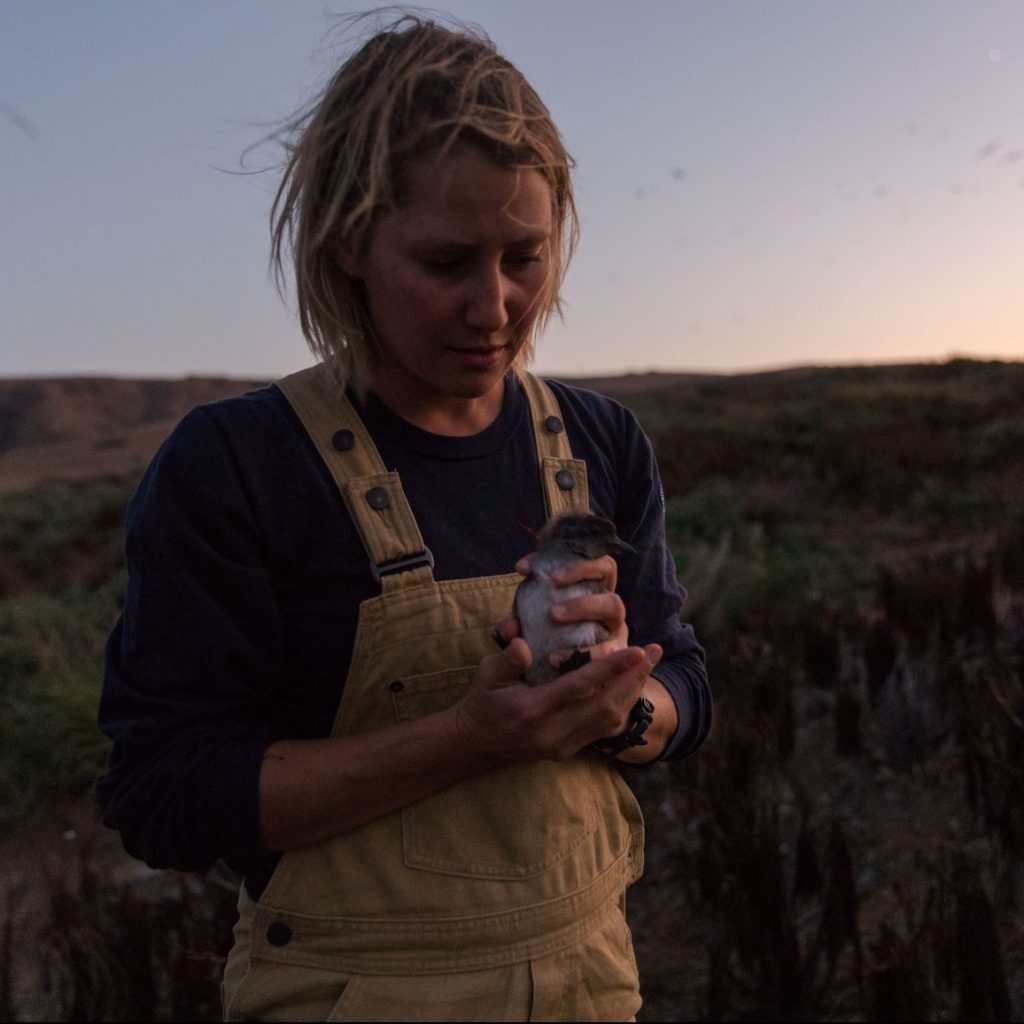
Ms. Amelia DuVall
Project: Seabird population modeling and threats assessment at Channel Islands National Park
Contact: ajduvall (at) uw.edu
I am a Master’s student within the School of Aquatic and Fishery Sciences at the University of Washington. Prior to joining the Quantitative Conservation Lab, I spent several years routinely getting pooped on while studying seabirds at Channel Islands National Park in southern California. In previous lives, I’ve worked as a veterinary technician at an emergency animal hospital, galley cook on a whale-watching boat, and program manager at an environmental consulting company. My research interests include seabird population dynamics, restoration ecology, island biogeography, and seabird conservation and resource management. You can find out more about my research here and follow me on Twitter here.
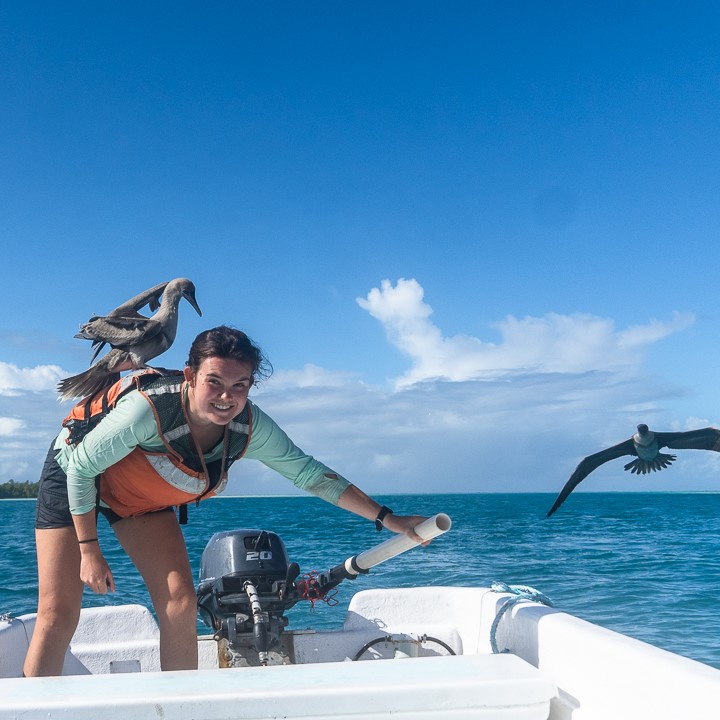
Ms. Eve Hallock
Project: Impacts of invasive rats on brown booby nest success on Tetiaroa Atoll, French Polynesia
Contact: eveh (at) uw.edu
I am a Master’s student in the School of Environmental and Forest Sciences at the University of Washington, co-advised with Dr. Beth Gardner. Prior to joining the Quantitative Conservation Lab, I completed my B.A.s in Anthropology and Biology & Society at Cornell University in 2020. My current research interests are: island conservation, seabird biology, atoll ecology, invasive species, human history with nature, and resource management. Previous fieldwork has included projects on: moose foraging in Norway, Marbled Murrelet nest tracking in Oregon, Galápagos Finch banding in Ecuador, seabird and native forest conservation on Palmyra Atoll, Masked Bobwhite reintroductions in Arizona, and Acorn Woodpecker behavior in California.
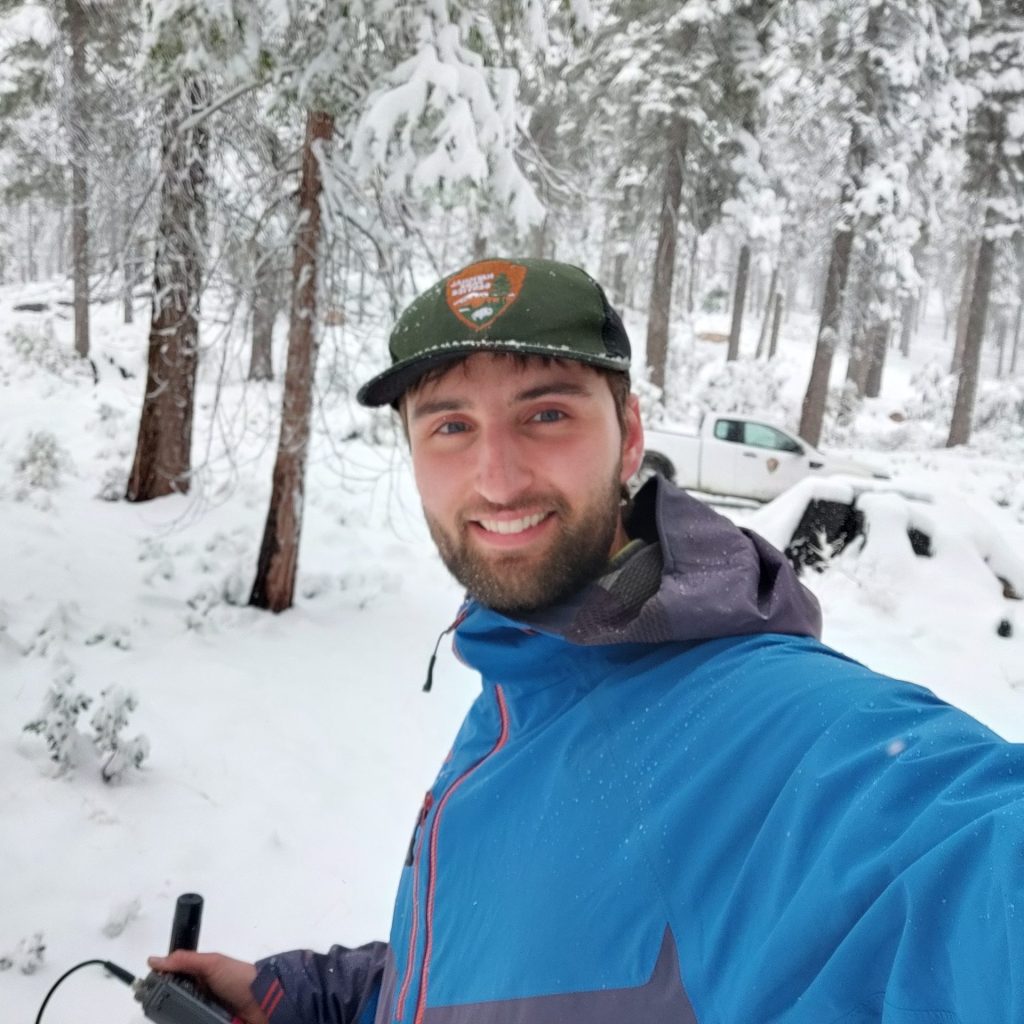
Mr. Nathan Redon
Project: Assessing threats to the declining Cascade red fox combining capture-recapture methods & Indigenous knowledge
Contact: nredon (at) uw.edu
I am a Ph.D. student in the School of Environmental and Forest Sciences at the University of Washington. Before joining the Quantitative Conservation Lab, I completed my B.S. in Environmental Science and Resource Management with a focus on Wildlife Conservation, also at UW. I’ve spent many moons diving on sage grouse, staring at gelada monkeys, and howling at wolves. More recently, I’ve been involved with projects studying endangered fishers and montane foxes in the Cascades and Sierra Nevada. My research interests include carnivore population dynamics, conflicts at the human-wildlife interface, and intraguild interactions in changing montane landscapes. I am currently working to develop estimates of density and survival of Cascade Red Fox in Mt. Rainier National Park and the surrounding area.
Research Scientists
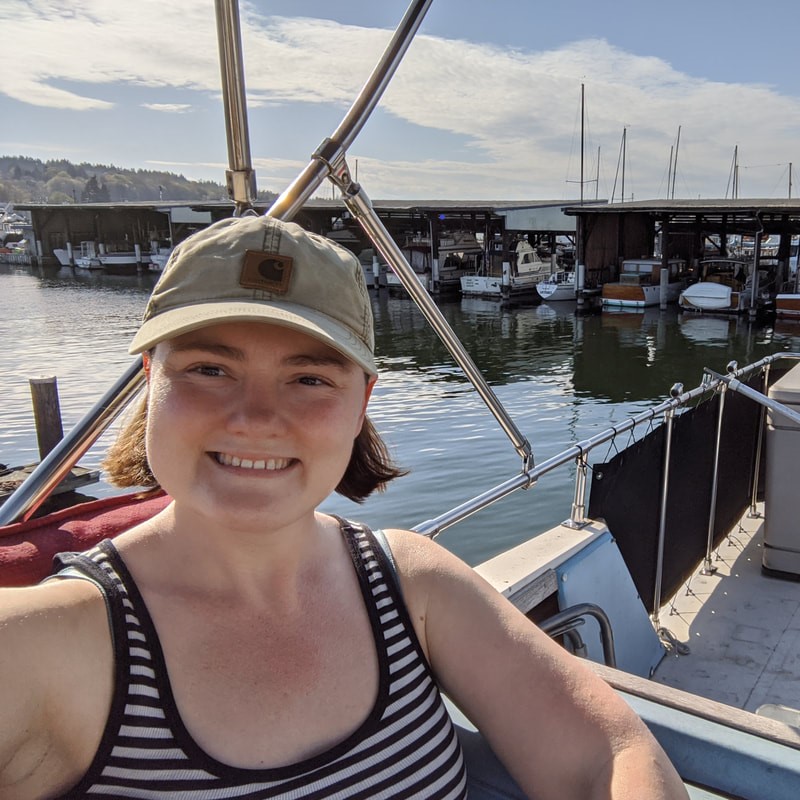
Ms. Kelly Mistry
Project: Optimal monitoring and management of brown treesnakes
Contact: kmistry (at) uw.edu
I am a recently minted quantitative ecologist, primarily interested in research that focuses on improving human-ecosystem relationships and interactions. I have worked with a variety of different models and ecosystem contexts, and am always looking to learn new methods or about new species and environments. In my master’s work, I used state space and spatiotemporal models and compared these modeling methods in the context of managing groundfish stocks in the Gulf of Alaska in partnership with colleagues at NOAA Fisheries and with the assistance of my advisor, Dr. Mark Scheuerell. In the Quantitative Conservation Lab, I am working with Dr. Staci Amburgey to inform management decision-making regarding optimizing the eradication of the invasive brown treesnake from Guam using simulation modeling.
In addition to being a scientist, I am also a historian and an artist (poetry and dance), and I try to bring all of these modalities to bear in my work. To contact me or learn more, visit my website. I’m always happy to talk with anyone considering science as a career coming from a non-traditional or first-generation background.
To be a scientist is
To seek
To make meaning
of the intersections, layers, overlapping forces
Shaping us
Shaped by us
Shaping the world
Lab Affiliates

Dr. Staci Amburgey
Project: Optimal monitoring and management of brown treesnakes
Contact: Staci.Amburgey (at) dfw.wa.gov
I am a former post-doc in the QCons Lab, now working as a quantitative ecologist for the Washington Department of Fish and Wildlife’s Science Division in the Wildlife Program. I help plan and implement field studies and analyze data related to the management and conservation of a variety of species within the state of Washington. I am helping to finish work on my previous post-doctoral project, focused on monitoring brown treesnakes in Guam, and developing optimal monitoring and management schemes to guide future monitoring and efforts at control and eradication. Prior to coming to Washington, I completed a Ph.D. at Pennsylvania State University and a M.S. at Colorado State University. You can read more about me here.
Past Lab Members
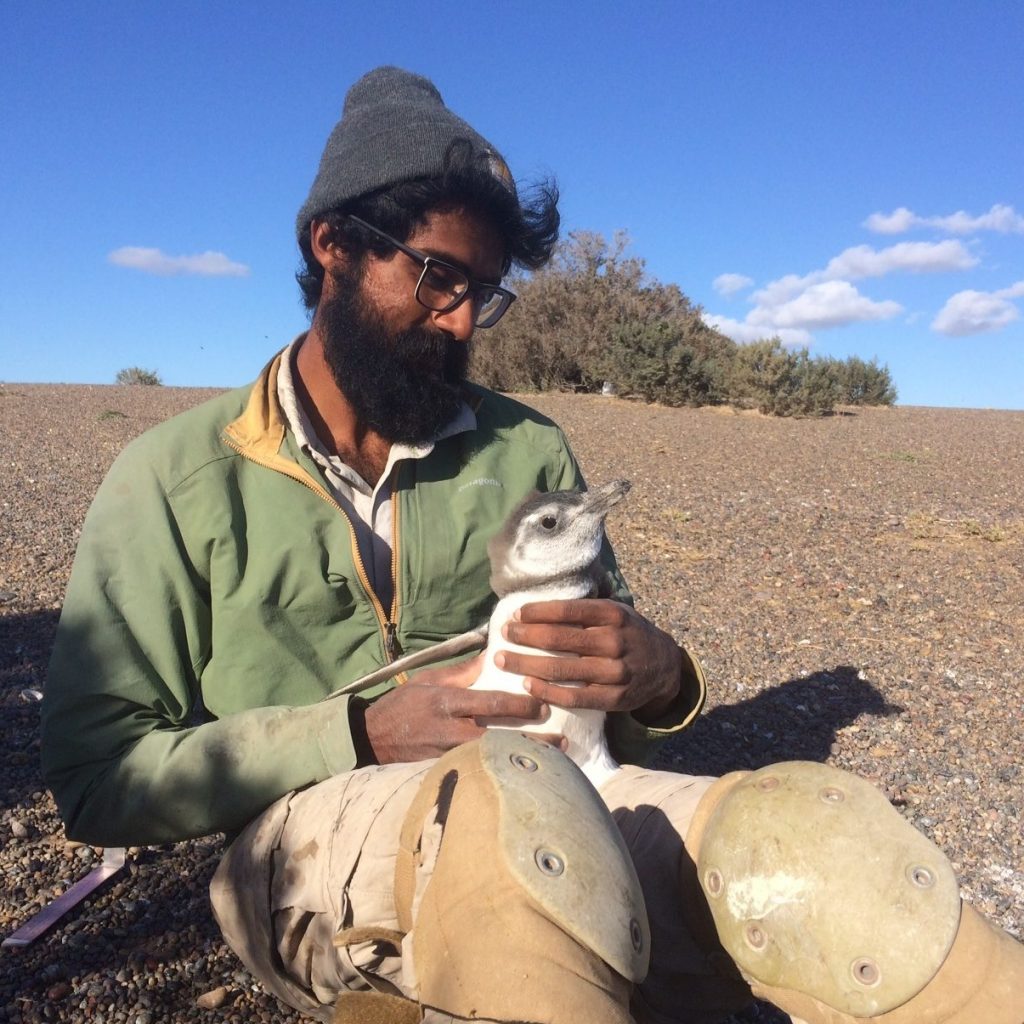
Mr. Liam Pendleton (MS, 2021-2024)
Dr. Brielle Thompson (Ph.D., 2019-2024)
Dr. Hannah Sipe (MS, 2016-2019; Ph.D., 2019-2023)
Dr. Abby Bratt (Ph.D., 2018-2023)
Dr. Amanda Warlick (Ph.D., 2018-2022; Post-Doc, 2022)
Dr. Jamie Brusa (Post-Doc, 2020-2022)
Dr. Lisanne Petracca (Post-Doc, 2020-2022)
Dr. Mark Sorel (Ph.D., 2018-2022)
Ms. Tam Ta (Undergraduate, 2020-2022)
Ms. Marcela Todd (Undergraduate, 2020-2021)
Dr. Nathan Hostetter (Post-Doc, 2016-2020)
Dr. Martina Kadin (Post-Doc, 2017-2020)
Dr. Jonathan Cummings (Post-Doc, 2013-2017)
Dr. Sabrina Servanty (Post-Doc, 2010-2013)
Dr. Stefano Canessa (Ph.D., University of Melbourne, 2011-2015)